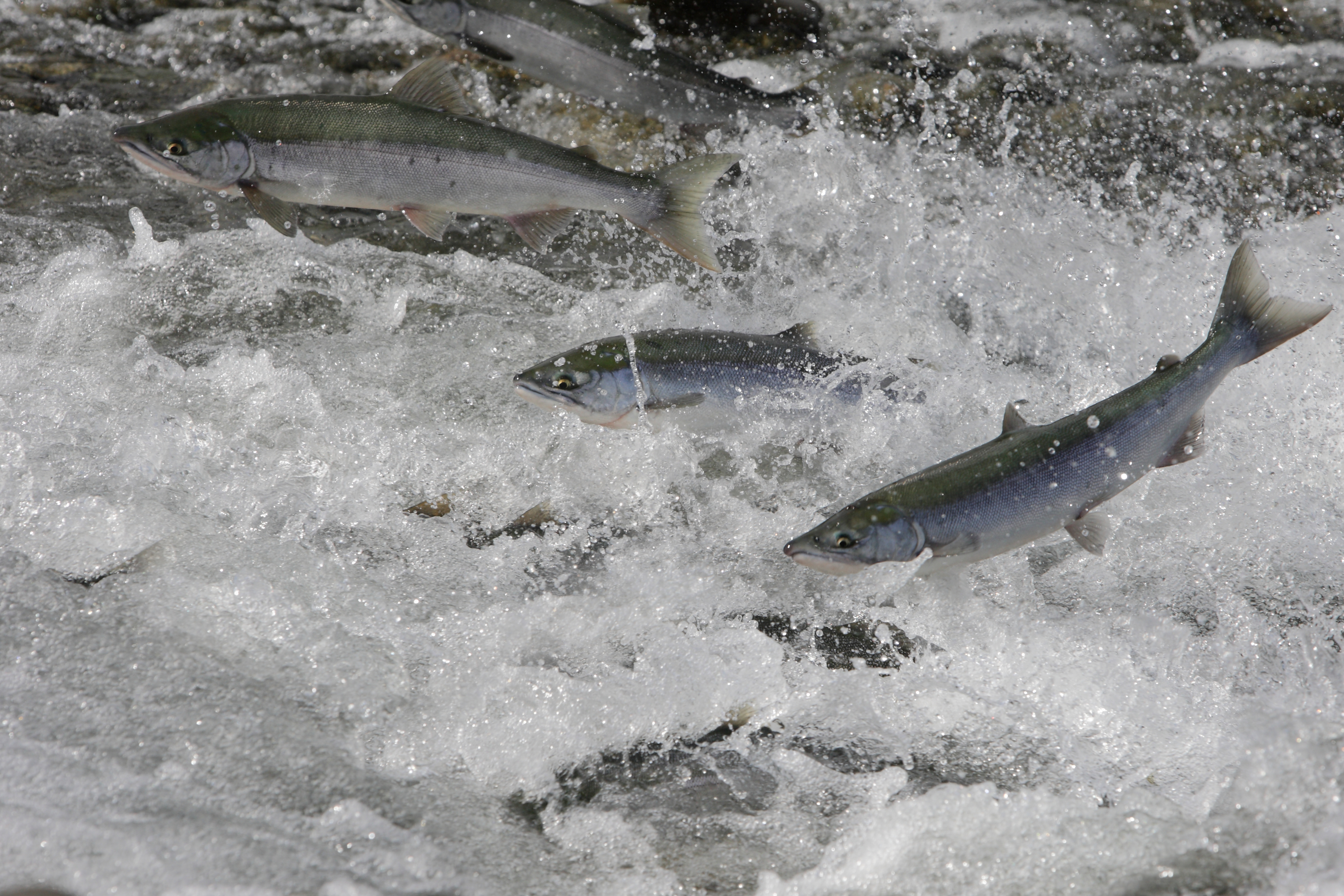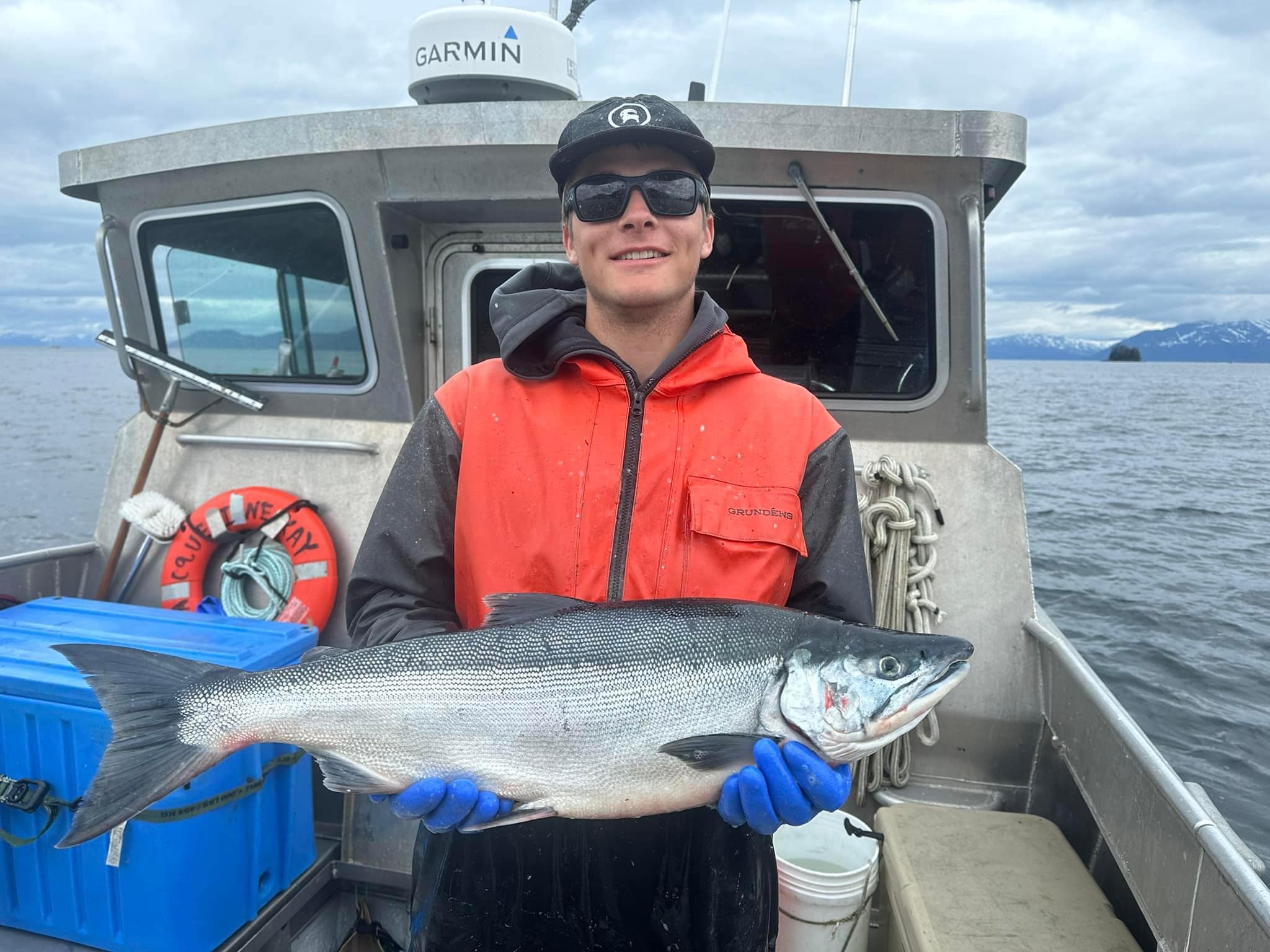By using our website, you agree to the use of cookies as described in our Cookie Policy
Prince William Sound Salmon: Nutrient Rich Journey of Sockeye, Keta and Pinks
Prince William Sound is home to all five species of Pacific salmon. Every year from June through September they return to our protected coastal waters in order to spawn. The unmistakable color and taste of these fish can be attributed to the rich waters in which they thrive. As they feed and grow to adults in the open ocean they retain the rich nutrients of their diet of small crustaceans and plankton as heart healthy omega-3s and flavorful oils. Prince William Sound is fed by multiple glaciers which contribute to the cold, pristine water environment that wild salmon require in order to be healthy
Our fleet is proud to bring this incredible natural superfood to the plates of people all over the world.
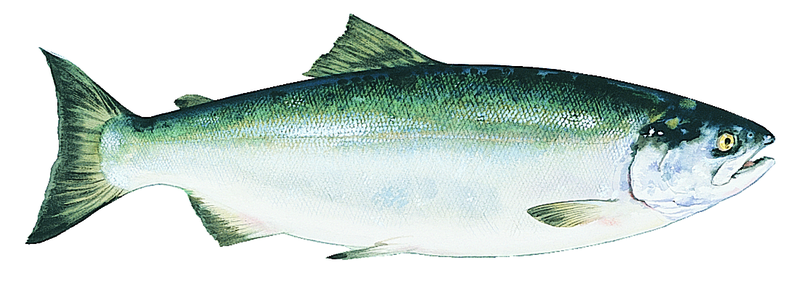
Prince William Sound Sockeye: Big runs, full flavor
Oncorhynchus nerka
6 lb average, range 4-6 lbs
Highly abundant and sustainable, this salmon species has the full flavor, firm texture and deep red color that makes it the poster child for wild Alaskan Salmon. A Summer BBQ favorite that goes great on the grill!
Nutrition
Serving size: 7oz
Calories: 325
Fat:12 g
Protein: 58 g
Omega-3: 1825 mg
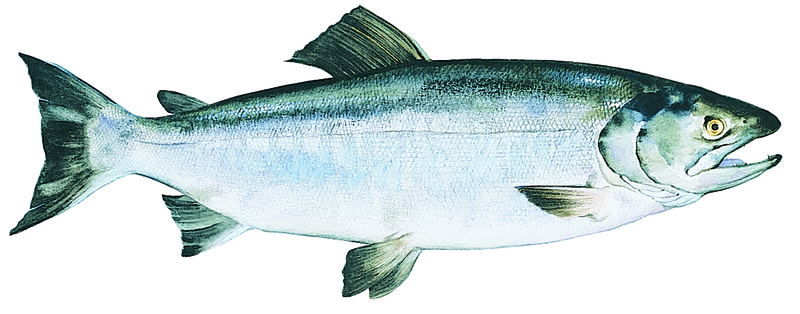
Prince William Sound Keta: The people's choice
Oncorhynchus keta
8 lb average, range 2-12 lbs
Mild in flavor and modest in price, Keta salmon, also known as Chum salmon, are a little-known secret that deserves to be more widely shared. The mild flavor makes this a friendly fish choice. Great to use in fillets for smoking or flaked in burgers and patties.
Nutrition
Serving size: 7oz
Calories: 325
Fat: 10 g
Protein: 55 g
Omega-3: 1708 mg
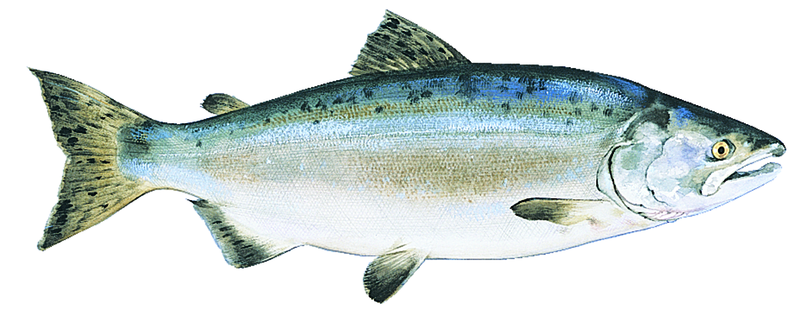
Prince William Sound Pink: Alaska's most abundant
Oncorhynchus gorbuscha
3 lb average, range 2-6 lbs
The most abundant salmon species harvested in Alaska, this fish will often be found canned or smoked. Its mild flavor and low fat content make it an excellent salad topper or burger. Perfect for introducing new palettes to wild salmon flavor.
Nutrition
Serving size: 7 oz
Calories: 325
Fat: 10 g
Protein: 52 g
Omega-3: 1310 mg
Source: USDA national nutrient database for standard reference, release #28/ Rounded per FDA guidelines
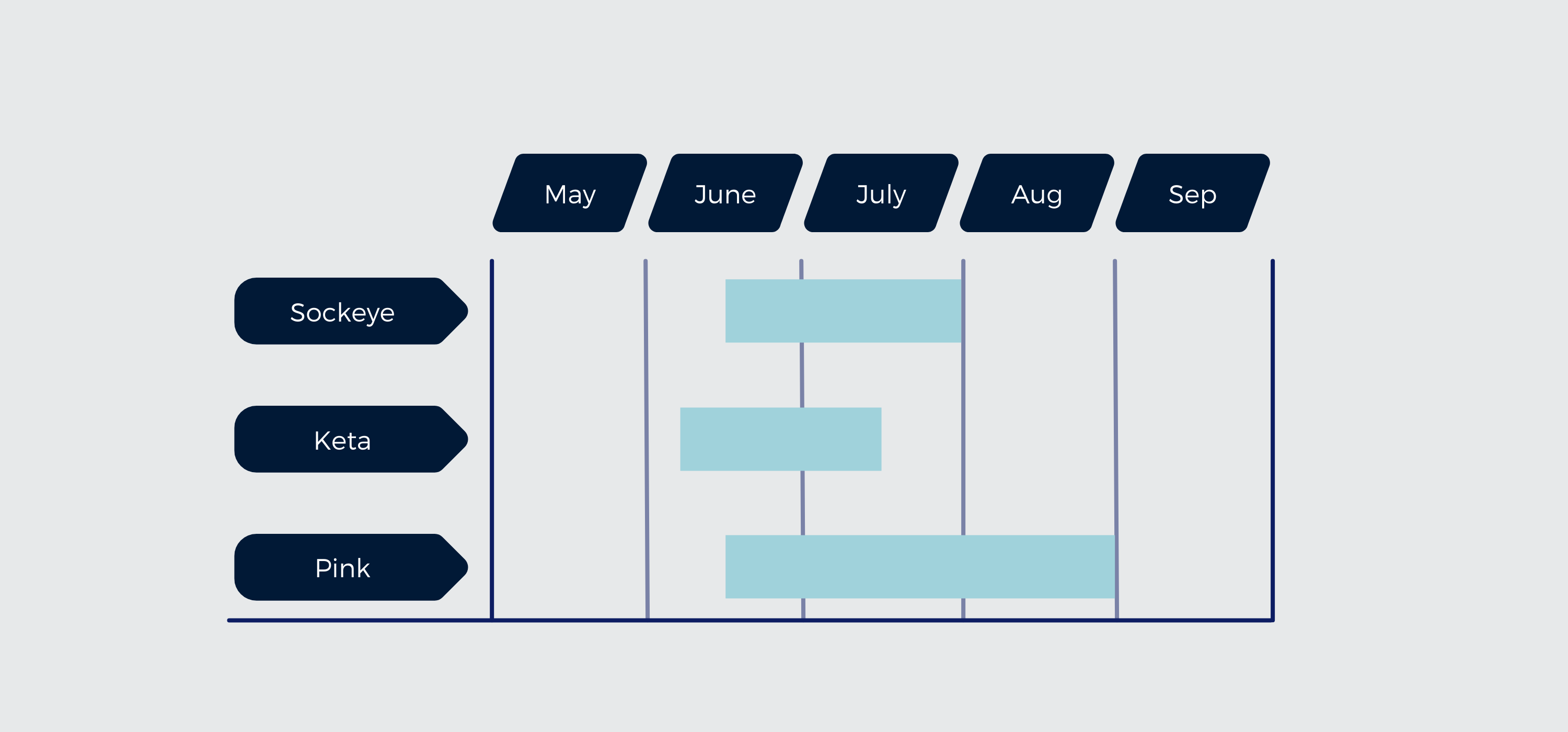
Prince William Sound seasonality and species chart
‹ Back


